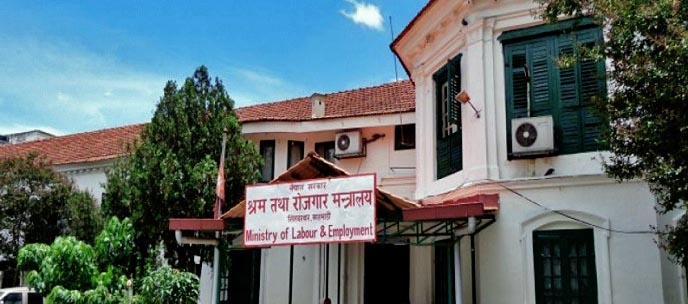Basic minimum wage eludes Nepali migrant workers
Due to the government’s short-sightedness while signing bilateral labour agreements with several countries, Nepali migrant workers are being deprived of a basic minimum wage and other benefits in destination countries.
Till date, the government has signed bilateral labour pacts with Qatar (2005), the United Arab Emirates (2007), South Korea (2007), Bahrain (2008), Israel (2015), Jordan (2017) and Malaysia (2018).
Ganesh Gurung, a labour expert, said the government had failed to pressure the concerned labour destinations to fix and endorse a minimum wage that is on par with what their citizens receive.
“The government has signed an incomplete labour pact with countries that does not mention basic things, such as minimum wage for Nepali workers that is on par with what workers of those countries get,” Gurung said, adding that the government needs to negotiate with those countries to end this discrepancy.
The discrepancy has led to disenchantment among Nepali migrant workers. The Qatari government has deported more than 350 Nepali migrant workers for demanding wage hike since 2014. Stakeholders say more migrant workers are facing similar problems in the Gulf and other countries with which Nepal has signed a labour pact.
Only in Japan and Malaysia do Nepali migrant workers get the same minimum basic salary that is fixed by the respective governments for their workers. However, majority of Nepali migrants are stationed in the Gulf countries.
Nepali migrants are getting monthly 1,100 dirhams in the UAE, 1,200 riyals in Qatar, 80 dinars in Kuwait, 100 rials in Oman and 100 dinars in Bahrain, including food, which has been fixed by the Nepali government. However, citizens of those nations receive much higher minimum wages.
Nepal has ratified numerous conventions, most notably the United Nations Immigration Convention-1990 and International Labour Organisation’s Conventions No 97 and 143, which clearly mention that the destination countries will not discriminate against migrant workers in paying minimum wages, including remuneration, social security and other benefits.
Yet, the pay scale of Nepali migrant workers is below what workers from India, Sri Lanka and the Philippines receive. The minimum wage fixed by India for its workers in Gulf countries is nearly 40 per cent higher than that of Nepalis. The minimum wage fixed by the Philippines for its workforce in the Gulf is nearly 110 per cent higher than what Nepalis get.
Ram Prasad Ghimire, joint secretary and head of Labour Relations and Social Protection Section under the Ministry of Labour, Employment and Social Security, said the government was doing its best to ensure that Nepali migrants get the minimum wage that citizens of the respective nations receive.
While accepting that there is a huge gap in the pay scale, Ghimire said recruiting agents were also to be blamed for this predicament, as they compel workers to accept wages that are below the government-set rates.
Meanwhile, recruiting agencies have accused dishonest government officials of not doing spadework before signing labour pacts. Rohan Gurung, president of Nepal Association of Foreign Employment Agencies, said, “Rather than passing the buck on us, the government should focus on holding timely and scientific increment in wages through consultation with all parties, including labour receiving countries.”
He stressed on the need to provide necessary skills to youths going abroad. “This will make them more saleable in the market, but the government is only focused on supplying cheap labour.”






